
ONE OF THE WONDERS of gardening is the reliable generosity of the earth, sun and plants themselves, which offer up fruits, leaves, berries, seeds and roots for our delight and sustenance year after year. In return, all we need to do is keep the soil healthy, feed and water the plants and provide physical support for vines that require it. Growing food (and flowers too) ties us intimately to the seasons and cycles of the natural world of which we are part. It roots us to a place, and the longer we garden in the same location, the deeper our taproot of intimacy with that place grows. Foraging further strengthens that intimacy with place.
"Whether you forage every day or once a month or only one time, the experience of foraging will change the way you look at your world," says Iso Rabins, founder of forageSF, a San Francisco-based organization that offers classes in the sustainable harvesting of edible plants, mushrooms and seaweeds.
"Knowing what you can eat in your local landscape connects you to a place more than anything else." Foraging also provides gardeners with unique, specific information about what grows well in the native soil and climate of a particular location. By foraging, you can note what plants and plant families prosper in your corner of the world. When it's time for you to choose something to plant in your own garden, you can select the natives you've observed thriving in your area, or you can focus on species that you've learned do well in the wild where you live.
Diese Geschichte stammt aus der November - December 2022-Ausgabe von Horticulture.
Starten Sie Ihre 7-tägige kostenlose Testversion von Magzter GOLD, um auf Tausende kuratierte Premium-Storys sowie über 8.000 Zeitschriften und Zeitungen zuzugreifen.
Bereits Abonnent ? Anmelden
Diese Geschichte stammt aus der November - December 2022-Ausgabe von Horticulture.
Starten Sie Ihre 7-tägige kostenlose Testversion von Magzter GOLD, um auf Tausende kuratierte Premium-Storys sowie über 8.000 Zeitschriften und Zeitungen zuzugreifen.
Bereits Abonnent? Anmelden

Pot It Up
Shake up the containergarden with theseNorth America –native perennials

THE GARDEN PATH TO PERDITION
I WAS CRUISING RIGHT ALONG, feeling okay about myself, when I came across a list of the Seven Deadly Sins.
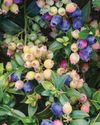
A Productive PATIO
Tiny fruit, vegetable and herb plants help gardeners maximize any sort of growing space
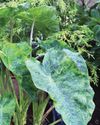
TROPICAL FUSION
A FUSS-FREE APPROACH TO USING BOLD TROPICAL PLANTS IN ANY TEMPERATE GARDEN

WINTER READING
Pass the time with any of these inspiring books
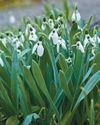
SENSING A PATTERN
Greg Coppa reflects on an odd weather year and what continued warming may mean for his Rhode Island garden
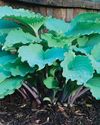
TOP-PRIZE PERENNIALS
A foliage masterpiece for shade and a late bloomer for sun

MARK WESSEL
What's new for fruit and vegetable gardeners?
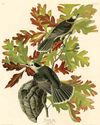
KINGS OF THE NORTHERN FORESTS
A look at the trees, shrubs and perennial plants that bolster life in Ecoregion 5

PROJECT FEEDERWATCH
Gardeners can help scientists know just where the birds are in winter